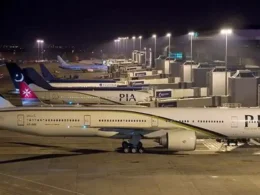Motorists in Dubai lost an average of 35 hours to traffic congestion in 2024, an increase of 2 hours from the previous year, according to the Inrix 2024 Global Traffic Scorecard.
This is a 45 percent rise compared to 2022, as both the city’s population and vehicle numbers continue to grow.
Dubai’s population surged by over 134,000 in 2024, reaching 3.8 million, driven by an influx of professionals, workers, and investors.
The number of registered vehicles increased by 8.7 percent to 4.3 million, with the number of vehicles during daytime hours reaching 3.5 million, according to the Roads and Transport Authority (RTA).
In response to growing traffic, Dubai is investing heavily in infrastructure, including a five-year plan (2025-2029) to develop 634 kilometers of new roads in 12 areas, costing Dh3.7 billion.
These projects aim to support the city’s urban expansion and population growth. The city’s commitment to infrastructure development, even during challenging times like the 2008-09 financial crisis and the pandemic, has been a key factor in maintaining its growth.
To alleviate congestion, the city has also introduced flexible working hours and remote work policies. Studies suggest these measures could reduce morning peak travel times by up to 30%.
Despite traffic challenges, Dubai ranked 154th globally in terms of congestion, performing better than many major cities.
However, average speeds have decreased, with peak travel speeds dropping from 35 miles per hour in 2019 to 32 miles per hour in 2024.
Overall, UAE motorists lost between 8 and 35 hours to traffic, with Abu Dhabi and Umm Al Quwain seeing improvements, reducing traffic time by 5 and 7 percent, respectively.
Globally, cities like Istanbul, New York, and London ranked as the most congested, with drivers in the US and UK losing significant time and money to traffic jams.
Source: Khaleej Times












